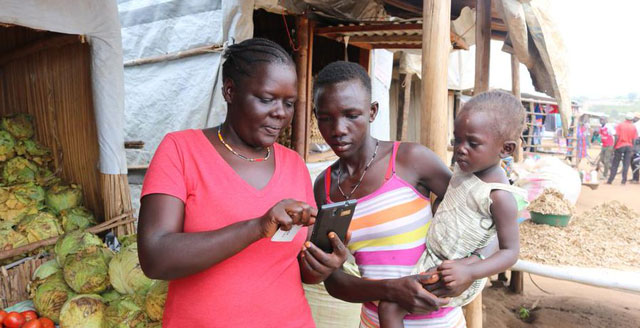
Kampala, Uganda | THE INDEPENDENT | A two-year study on the refugee populations in Uganda has revealed that refugees are more economically viable than they have been considered before.
The ‘End-line Study for the Financial Inclusion for Refugees Project’ on the theme: Rebuilding Livelihoods in Displacement was aimed at enabling policymakers, civil society, and leaders to make more informed decisions regarding the refugee sector.
The survey shows that the refugees still rely on cash donations and food rations for more than half of their day-to-day needs, but that this is reducing as they find more access to employment opportunities.
However, it also revealed that the average incomes of the host communities are not quite different from those of the refugees, despite one group being under some form of restrictions, while another is entirely free.
In the four refugee camps studied in the last quarter of 2021, refugees at the Bibi-Bidi camp in Yumbe, West Nile had the highest average income of 335,000 shillings monthly, followed by those at Palorinya in Moyo district, whose average income was 289,458 shillings.
Refugees in Kampala earn an average of 200,000 shillings while those at Nakivale settlement earn the lowest, averaging 133,167 shillings. Nakivale was the only camp where the average income dropped (by 75,000 shillings) from the first quarter of 2020 when the two-year study commenced.
The study was done by Financial Sector Deepening Uganda, Financial Sector Deepening Africa, and BFA Global, a global consulting firm on digital and financial innovation with the support from UKaid.
The main sources of income for refugees remain non-employment income or donations, agriculture, self-employment like trade and boda boda, and rental income among others.
Michelle Hassan, the BFA Global Country Manager based in Kenya, says the refugees are basically involved in any kind of trade suitable for the area in which they are, which shows how versatile they can be.
The government’s initial and oldest policy on the livelihood of refugees is access to land for cultivation for consumption and sale.
This is boosted by allowing the refugees to freely interact with the host communities which means access to the wider markets away from the resettlement.
But apart from agriculture, the refugees have diversified into other sectors including trade, mobile money agency, and others have constructed buildings on their plots, to give shelter to those with no shelter at a fee.
According to Nelson Balyeku, the Head of Monitoring and Evaluation at the Department of Refugees at the Prime Minister’s Office, some refugees who have been returned to their home countries have found their way back to Uganda as former refugees.
And some have joined the mainstream economy as large-scale investors.
The refugees are also allowed to form groups like village savings and loan associations and SACCOs which help them get micro-loans and also grow their savings.
These models are also helped by the growing use of mobile phones, with more people opening mobile money accounts as opposed to bank accounts.
“While the number of refugees accessing bank accounts and SACCOs has not changed much over the last two years, cash at home, use of mobile money, and use of savings groups have increased. There was a significant change in keeping cash at home, from 29% at the baseline to 59% during the end-line,” the study reveals.
The growth in money kept in homes over the two-year period was because of the Covid-19 pandemic which forced people to keep cash for emergency purposes in case need came to seek medical attention.
The use of mobile money was encouraged by NGOs and financial and telecom institutions, which helped the refugees acquire mobile phones, with the hope of also using the phones for other functions away from calling and messaging and mobile money.
Over the two years, mobile money usage grew from 29 percent to 61 percent.
However, the growth of mobile money was also affected by the inability of the new phone users to keep their passcodes.
This was the same with debit cards which have been promoted as a matter of necessity to reduce physical contact during transactions to prevent the spread of Covid-19. This had to be resolved by conducting sensitization exercises on how to keep passcodes.
Vision Fund, Rural Financial Initiative, and Equity Bank were the main companies providing credit to refugees, with the Uganda Communication Commission providing data and identification facilities for the lenders to develop ‘Know Your Customer” records.
FSD Africa and FSD Uganda offered a 1 million dollars (3.5 billion shillings) grant support and technical assistance to the three financial institutions over the period of two years.
“The aim for the grant was to catalyze provision of financial services and assess the impact of providing cash transfers through digital channels and agency banking model on refugee and host livelihoods,” says David Darkwa, the Manager, Competitive Strategies at FSD Uganda.
He says one of the main problems was finding suitable financial products like loans and savings, but they decided together with the financial institutions, to create hybrid products that the refugees would easily embrace.
*****
URN
 The Independent Uganda: You get the Truth we Pay the Price
The Independent Uganda: You get the Truth we Pay the Price





